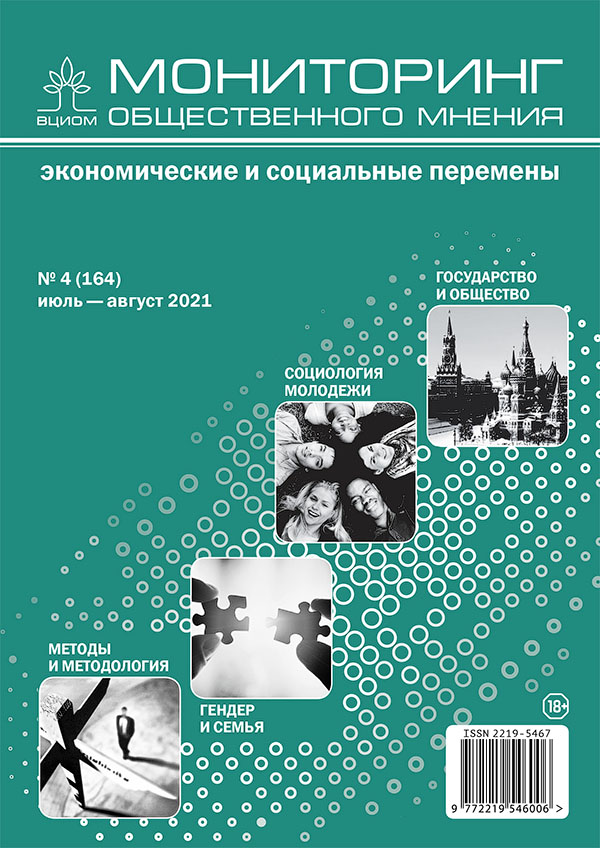Гендерное (не)равенство в политической власти российских регионов
DOI:
https://doi.org/10.14515/monitoring.2021.4.1652Ключевые слова:
гендер, элита, воспроизводство, социальный институт, российские регионыАннотация
Cтатья посвящена проблеме гендерного (не)равенства в политической элите российских регионов. В первой части работы разбирается научная дискусcия относительно гендерного профиля политической власти. В частности, рассматриваются исследовательские подходы по поводу участия женщин в политическом процессе как в России, так и в зарубежных странах. В статье определено, что формирование политической элиты на региональном уровне не завершено в силу того, что в обществе продолжаются социально-политические трансформации и гендерный профиль власти находится в динамичном состоянии.
Во второй части работы представлены результаты эмпирического исследования карьерных траекторий и образовательного уровня политической элиты десяти российских регионов (Москва, Санкт-Петербург, Ленинградская, Костромская, Калининградская, Новосибирская и Ростовская области, Республика Дагестан, Хабаровский и Ставропольский края). Структурно-биографический анализ (649 биографий депутатов) позволил выявить гендерную специфику парламентов в исследуемых российских регионах. Согласно полученным данным, несмотря на то что женщины «допускаются» во властные структуры, все же политическая элита воспроизводится на закрытых основаниях. Чаще всего попадание женщин в региональный парламент носит неслучайный характер и продолжает ее профессиональную траекторию (административную, партийную, экономическую). Наблюдается устойчивый процесс горизонтального перемещения с одной элитной позиции на другую. Показано, что в рассматриваемых регионах происходит профессионализация политической элиты и формируется пул политиков, в который входят и женщины-депутаты.
Даже в том случае, когда в парламентскую элиту попадает относительно значимое число женщин (от 30% и выше), открытой конкуренции за место в парламенте между кандидатами в депутаты не происходит и гендерный профиль российской власти радикально не изменяется. В целом сохраняется старый гендерный порядок внутри российской политической элиты, которая преимущественно воспроизводится по типу квазициркуляции (в терминологии Д. Хигли). При этом политическая элита активно профессионализируется, переплетается с административной элитой и оказывается социально закрытой для притока новых персон.
Загрузки
Опубликован
Как цитировать
Выпуск
Раздел
Лицензия
Copyright (c) 2021 Мониторинг общественного мнения: экономические и социальные перемены

Это произведение доступно по лицензии Creative Commons «Attribution-NonCommercial-ShareAlike» («Атрибуция — Некоммерческое использование — На тех же условиях») 4.0 Всемирная.






